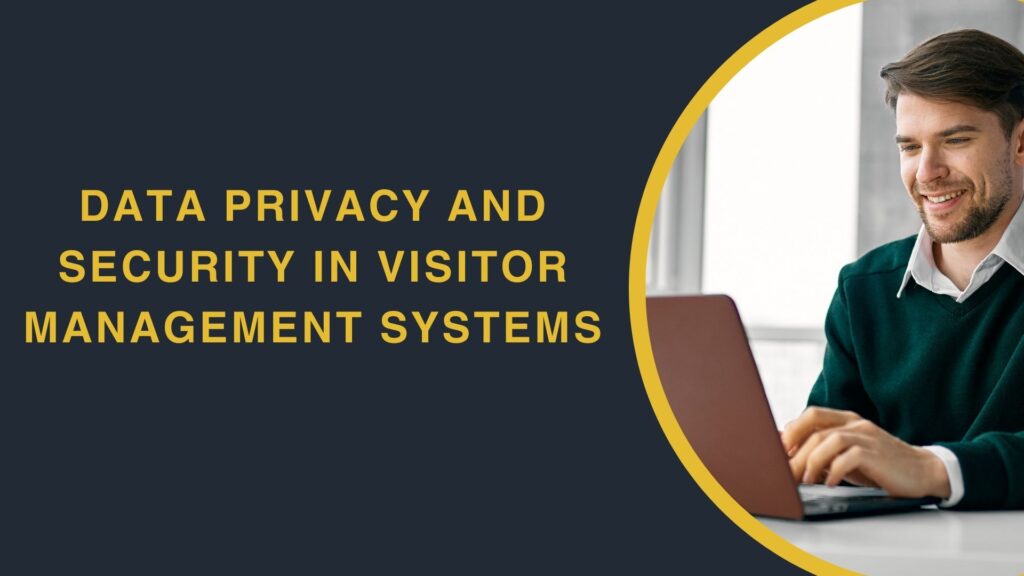In an era where data breaches and digital threats are becoming increasingly common, organizations must prioritize the protection of personal information—especially when it comes to managing the flow of visitors in physical spaces. Visitor Management Systems (VMS) have revolutionized the way businesses, schools, hospitals, and other institutions track and monitor guest access. However, with this convenience comes a pressing responsibility: ensuring the data collected is handled with the utmost privacy and security. This article delves into the critical aspects of data privacy and security in Visitor Management Systems, offering a comprehensive look at the challenges, best practices, and technological innovations shaping this domain.
Understanding Visitor Management Systems
A Visitor Management System is a software-based solution designed to streamline the check-in and check-out process for guests entering a facility. These systems replace traditional paper logbooks with digital platforms that capture vital visitor data, including:
- Full name
- Contact information
- Photo identification
- Time and date of visit
- Host details
- Purpose of visit
Advanced VMS platforms may also capture biometric data, conduct background checks, or scan government-issued IDs. While these features enhance safety and operational efficiency, they also collect sensitive personal information, making data security a top priority.
The Importance of Data Privacy and Security
Visitor data can be a goldmine for cybercriminals if not properly secured. Names, contact details, and ID information can be exploited for identity theft, phishing attacks, or unauthorized surveillance. A data breach can lead to:
- Legal consequences: Non-compliance with data protection regulations like GDPR, HIPAA, or CCPA can result in significant penalties.
- Reputational damage: Loss of public trust can have long-term implications for any organization.
- Operational disruptions: Data breaches can cripple systems and lead to costly downtime and recovery efforts.
Hence, implementing robust security protocols within VMS platforms is not optional—it’s a necessity.
Key Challenges in Securing Visitor Data
Despite technological advancements, several challenges persist:
- Decentralized Data Storage: Some organizations still use legacy systems or store data on local servers, increasing vulnerability.
- Lack of Awareness: Staff may not be trained to handle sensitive information appropriately.
- Third-Party Integrations: Many VMS platforms connect with other systems (e.g., access control, HR databases), complicating security efforts.
- Bring Your Own Device (BYOD): Visitors using personal devices to check-in can introduce malware or create data leakage risks.
- Physical Security Risks: Unsecured kiosks or unattended devices may lead to unauthorized access to stored data.
Best Practices for Data Privacy in VMS
To address these challenges, organizations should follow industry-standard best practices:
Data Minimization
Collect only the information that is absolutely necessary for security or compliance. Avoid asking for excessive or irrelevant personal data.
Transparent Consent Mechanisms
Clearly inform visitors about what data is being collected, how it will be used, and obtain explicit consent. This includes providing access to privacy policies at check-in points.
Secure Data Transmission
Ensure that all data transmissions between devices, servers, and cloud platforms are encrypted using protocols like HTTPS, TLS, or SSL.
Data Encryption at Rest
Encrypt visitor data stored on databases to prevent unauthorized access even in case of a breach.
Access Control
Implement role-based access control (RBAC) to limit data access to authorized personnel only. Use multi-factor authentication (MFA) for added security.
Automated Data Retention Policies
Set up automatic data purging mechanisms to delete visitor data after a predetermined period, in compliance with regulatory requirements.
Regular Security Audits and Penetration Testing
Perform routine assessments to identify and mitigate vulnerabilities in the system.
User Training and Awareness
Educate employees on data privacy protocols and encourage a culture of security mindfulness.
Regulatory Compliance and Standards
Compliance with international data privacy laws is a cornerstone of secure visitor data management. Some key regulations include:
- GDPR (General Data Protection Regulation) – For organizations operating within or interacting with the European Union.
- HIPAA (Health Insurance Portability and Accountability Act) – Relevant for healthcare institutions in the U.S.
- CCPA (California Consumer Privacy Act) – Focused on protecting the data rights of California residents.
Visitor Management Systems must be configurable to adhere to these diverse regulations, including offering data access requests, data deletion features, and audit trails.
The Role of Cloud Technology
Cloud-based VMS solutions are increasingly preferred for their scalability and centralized security features. Key advantages include:
- Automatic software updates and patch management
- Enhanced data redundancy and backup protocols
- Scalable encryption and firewall protections
- Integration with identity management platforms like Okta or Azure AD
However, organizations must ensure that their cloud providers are compliant with industry standards such as ISO 27001, SOC 2, or FedRAMP.
Future Trends in VMS Data Security
The evolution of VMS technology continues to intersect with emerging trends in cybersecurity. Notable advancements include:
- Artificial Intelligence and Machine Learning: AI can detect unusual visitor patterns or suspicious behaviors in real time.
- Blockchain for Immutable Audit Trails: Blockchain-based systems can offer tamper-proof records of visitor logs.
- Zero Trust Architecture: Ensures every access attempt is verified, regardless of whether the user is inside or outside the network.
- Biometric Security Enhancements: Secure biometric data capture using edge computing, reducing cloud transmission risks.
Conclusion
As the reliance on Visitor Management Systems grows, so does the imperative to treat visitor data with the highest degree of care. A secure VMS is not just a technological asset—it’s a critical pillar of trust, compliance, and organizational integrity. By adopting privacy-first design principles, staying informed about regulatory changes, and leveraging advanced security tools, businesses can create a safe and welcoming environment for every visitor without compromising their right to privacy.
In the digital age, safeguarding visitor data is more than a best practice—it’s a responsibility that defines the credibility and ethical standing of an organization.






